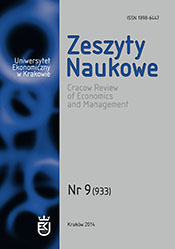Reactive and Proactive Age Management Strategies in Polish Companies – Research Results
Reactive and Proactive Age Management Strategies in Polish Companies – Research Results
Author(s): Izabela Kolodziejczyk-OlczakSubject(s): Economy
Published by: Wydawnictwo Uniwersytetu Ekonomicznego w Krakowie
Keywords: age management; ageing society; older worker; active ageing; human resource management
Summary/Abstract: Population aging is an objective process that will be unavoidable for the foreseeable future, because demographic changes cannot be quickly reversed. Populations are aging in Poland and other countries, particularly highly urbanised and industrialised ones. As a result, in addition to having to cope with the numerous challenges of globalisation, internationalisation, tertiarisation, informatisation, growth of competition and innovation, as well as changing consumption patterns and customs, organisations also face the effects of aging. Successive types of age management strategies and practices have arisen from how age management has been understood and handled, which shows that organisations develop linearly. Two early types are examples of reactive strategies that emerged in response to the requirements of the business environment. Other strategies, which I refer to in the paper as 1st, 2nd, and 3rd generation strategies, are proactive. In this paper I classify age-management strategies adopted by Polish employers using an indicator that I designed. The study results demonstrate that while Polish employers differ in how they approach the problem of age and how they manage it in the instrumental and functional sphere, in the institutional sphere they are only somewhat advanced and differentiated. „Soft” age management is a necessary part of a company’s social model, and makes it possible for many stakeholders to benefit. The economic model, on the other hand, seems insufficient, particularly in the long term.
Journal: Zeszyty Naukowe Uniwersytetu Ekonomicznego w Krakowie
- Issue Year: 933/2014
- Issue No: 09
- Page Range: 137-155
- Page Count: 19

